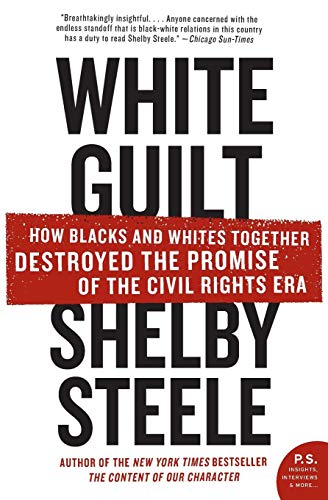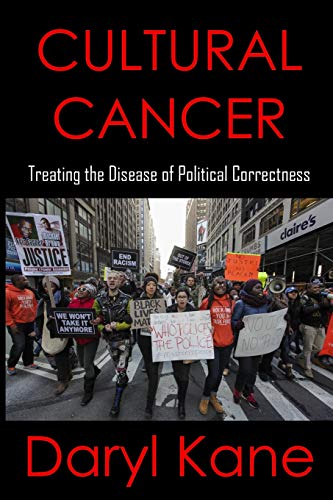In an earlier piece we have attempted to bring to light the real motives behind the “anti-racism” crusade which has been sweeping the Western world. We have argued that its objective is not to correct racial injustice but to subvert Western societies. The inability of social justice warriors to give genuine examples of societally sanctioned racism shows the true nature of this movement.
The most frequently used argument in support of the claim of systemic racism is the use of force by police against blacks, which it is claimed, is disproportional and racially motivated. This, it is said, is symptomatic of the intrinsically racist nature of American society which uses law enforcement to harass and oppress minorities.
There is a scenario that regularly takes place in connection with this narrative. An African American is shot by the police. Before there is time to hear the full story of what happened, the news quickly spreads that the police have “murdered” or “executed” an innocent person. The man in question is usually described as a peaceful individual who was just going about his business. Upon hearing this, cries of injustice are heard and protests break out. Jesse Jackson, Al Sharpton and other activists arrive to give speeches. When the facts of the case finally emerge in full, however, it usually turns out that the suspect was actually a violent person with a long criminal record and the incident in question took place while he posed deadly danger to those around him.
 Beyond Woke
Buy New $19.99
(as of 11:37 UTC - Details)
Beyond Woke
Buy New $19.99
(as of 11:37 UTC - Details)
This is not to say that policemen do not make mistakes, harm innocent people or employ excessive force on some occasions. This does happen and such offences need to be dealt with. Almost everyone agrees that cops who deliberately misuse their power should be persecuted and punished. There is, however, no evidence that there exists a systemic pattern of abuse along racial lines. A study after study have demonstrated this. A recent article in the Wall Street Journal titled “The Myth of Systemic Police Racism” states: “A solid body of evidence finds no structural bias in the criminal-justice system with regard to arrests, prosecution or sentencing. Crime and suspect behavior, not race, determine most police actions.”
The article, then, goes on to give actual data and facts:
“In 2019 police officers fatally shot 1,004 people, most of whom were armed or otherwise dangerous. African-Americans were about a quarter of those killed by cops last year (235), a ratio that has remained stable since 2015. That share of black victims is less than what the black crime rate would predict, since police shootings are a function of how often officers encounter armed and violent suspects. In 2018, the latest year for which such data have been published, African-Americans made up 53% of known homicide offenders in the U.S. and commit about 60% of robberies, though they are 13% of the population.”
Notice this: Fewer blacks die in the hands of police than would be expected given the crime ratios. Even though more than half of violent criminals are black, they constitute about one quarter of suspects shot by law enforcement. In other words, black criminals are disproportionally less likely to be killed than white criminals.
Exactly the same conclusion was arrived at by Roland Fryer who is a professor of Economics at Harvard University. Professor Fryer also happens to be black. A few years ago, he conducted an extensive study in which he investigated how the use of police force plays out among various racial groups. This is how the results of the study have been reported just after it came out: “There is no racial bias when officers fire on suspects, according to a new study by Prof. Roland Fryer – black suspects are actually less likely to be shot than other suspects.” To put it in different words, studies keep demonstrating that there seems to be a kind of strange form of reverse discrimination when it comes to the use of lethal force against crime suspects.
Fryer called his findings “the most surprising result” of his career. He speculated that the comparative leniency toward black criminals was due to the disproportionate legal and psychological costs that are incurred by officers as a result of fatal events involving African Americans. His reasoning is probably correct, for we rarely see special persecutions, protests and burning cities after white suspects are shot by the police.
This documented leniency, however, does not earn officers a great deal of good will from the lawbreaking community. As the Wall Street Journal points out: “A police officer is 18½ times more likely to be killed by a black male than an unarmed black male is to be killed by a police officer.” So much for the charge of “black genocide” which is sometimes so irresponsibly thrown around by champions of social justice.
 White Guilt: How Black...
Best Price: $13.13
Buy New $10.08
(as of 05:01 UTC - Details)
White Guilt: How Black...
Best Price: $13.13
Buy New $10.08
(as of 05:01 UTC - Details)
Apart from the demonstrably false charge of police racism, social justice warriors do not really offer any other believable examples in support of their claims. Even while they make their sweeping accusations of structural, institutional and systemic racism, they actually offer no credible evidence to back up their assertions. Revealingly, this deficiency plagues the anti-racism movement on both sides of the Atlantic. A couple of months ago there was an eye-opening interview with an activist who participated in the protests that were at the time convulsing Britain. In the course of the interview he was asked whether he could give specific examples of racism in the UK. Instead of citing some concrete instances, the activist replied that specifics do not matter. What really matters, he declared, is the overall atmosphere.
This should make everyone pause and think. If the US and the UK were indeed racist societies, the protestors should have no difficulties citing numerous real-life instances of racism. This, however, they never do. What they do instead is to level sweeping but nebulous condemnations. Specifics, of course, matter. They, in fact, matter supremely, for if our societies suffer from pervasive racism then that would be the result of specific, identifiable practices, actions, laws and rules. If we want to end racial discrimination, we have to begin with something concrete. What measures can be taken or what laws can be passed on the basis of the vague and unspecific assertions of systemic racism? What do phrases such as “systemic” “structural” or “institutional” racism even mean in absence of any specifics? The protestors need to show where the alleged racism actually resides and what forms it takes. Otherwise it is impossible to do anything about it.
In the Jim Crow era – when there was real racism in this country – the activists of that time could easily point to specific laws and practices that were racist. It was easy to see where racism was and how it was maintained and perpetuated. People of good will had something to work with and subsequently progress could be made, i.e., it was obvious which discriminatory laws needed to be repealed and what practices had to be eliminated in order to achieve racial justice.
Today, however, no discriminatory laws or practices are cited by the protestors. Lacking in specificity, therefore, their allegations of systemic racism are empty and in-actionable. Rather than to rectify genuine injustices, the main objective behind such claims seems to be the desire to evoke guilt for the purpose of obtaining political power. Shelby Steele’s observation, which he made more than a decade ago, seems to apply perfectly today:
“[I] know it [white guilt] to be something very specific: the vacuum of moral authority that comes from simply knowing that one’s race is associated with racism. Whites (and American institutions) must acknowledge historical racism to show themselves redeemed of it, but once they acknowledge it they lose moral authority over everything having to do with race, equality, social justice, poverty, and so on. They step into a void of vulnerability. The authority they lose transfers to the ‘victims’ of historical racism and becomes their great power in society. This is why white guilt is quite literally the same thing as black power.”
Shelby Steele should know about these matters, since he is speaking from personal experience. If you did not know, Steele is black and he himself was part of a group that used such tactics with good effect during his student days.
 Cultural Cancer: Treat...
Best Price: $20.00
Buy New $9.95
(as of 04:04 UTC - Details)
Cultural Cancer: Treat...
Best Price: $20.00
Buy New $9.95
(as of 04:04 UTC - Details)
We would suggest that there is a good reason for why social warriors of today do not present any genuine evidence for their claims: There is none. American society, as well as other western democracies, are no racist regimes and as such they have no institutionalized racist practices and laws. And even though this observation may startle those who have succumbed to the prevailing official narrative – which is that we are all racists – it is true nevertheless. Not only is today’s narrative false, but the opposite is actually the case: Our system is strongly biased in favor of the black minority. In other words, we discriminate against the majority – and certain high-achieving minorities – for the purpose advantaging selected minorities, especially African Americans. Rather than practicing systemic racism our society in reality practices systemic reverse racism.
Unlike the social warriors who complain of systemic racism, the fact of systemic reverse racism can be documented with hundreds of real-life examples. Only last week, for example, the US Department of Justice found that Yale University discriminated against white and Asian students. According to a piece in the Wall Street Journal, the Department concluded after its investigation that “Yale discriminates based on race and national origin, violating federal civil-rights law, and that race was the ‘determinative factor’ in hundreds of admissions decisions each year. It said for the majority of applicants, Asian-American and white students have one-tenth to one-fourth the likelihood of being admitted as African-American applicants with comparable academic credentials.”
Commenting on the finding, Pat Buchanan points out: “If the definition of racism is deliberate discrimination based on race, color or national origin, Yale University appears to be a textbook case of ‘systemic racism.’” Yale will undoubtedly receive a great deal of criticism for this, but we feel compelled to come to its defense. The practice for which Yale has been unfairly singled out is actually widespread among institutions of higher learning across the United States. Harvard, for example, has also been in hot water for the same issue. The case against Harvard was brought on by Asian applicants who filed a lawsuit on the grounds of discrimination. In the process, the plaintiffs compelled the university to disclose some of its admission procedures, and it turns out – from the information available so far – that Harvard apparently engages in a kind of racial profiling one would not think possible in 21st century America. During the application process, the university apparently assigns points for applicants’ race, and if you happen to be an Asian American you suffer a deduction in the “personal rating” column. The net result is that many highly accomplished Asian Americans are excluded in favor of less qualified black candidates. Even though in an earlier ruling the presiding judge acknowledged Harvard’s discrimination, he used rather tortuous reasoning to try to justify this behavior. The case is now headed for the Supreme Court and many observers think it will not go well for Harvard given all the facts that have come to light. The Ivy leagues, however, are not the only institutions that struggle with this issue. We could go right down the list and name a hundred of other US schools that engage in the same or worse practices.
But there is an even deeper point to be made: The reverse-discrimination that exists in higher education is emblematic of our society as a whole. The truth is that American society practices this kind of discrimination in almost every sphere of life: education, employment, government contracting, cash transfers, social support, etc. Most of these are calibrated – in subtle and not so subtle ways – in the manner that favors minorities in general and African Americans in particular.
Here is the crux of the matter: Racism activists claim that America is a racist society that systemically discriminates against black people, but they fail to submit any genuine evidence in support their claims. In the absence of such evidence, it has to be concluded that their allegations are untrue. On the other hand, it is quite obvious that there exists reverse discrimination all throughout our society that favors black Americans. This observation can be easily backed up with hundreds of genuine real-life, documentable examples of social and institutional practice.
 The Red Trojan Horse: ...
Best Price: $14.85
Buy New $14.50
(as of 03:45 UTC - Details)
The Red Trojan Horse: ...
Best Price: $14.85
Buy New $14.50
(as of 03:45 UTC - Details)
What ultimately decides the truth of any issue is the facts and not unsupported assertions. Protesting, screaming and cancelling opposing views does not make social justice activists’ attestations any more true. In fact, such behavior only puts into sharper relief the hollowness of their claims.
Our appeal is this: Let us not tear down this society under false pretenses. Let us look at our situation soberly and fix whatever needs fixing. We are not perfect and there are many issues that need to be addressed. Our society, for example, suffers from a serious spiritual moral decline which has affected all demographics across the spectrum, but hit the black community especially hard. Most black children grow up without their fathers under the influence of noxious street culture, which is a combination that effectively destroys their prospects for good life. Let us encourage and support black men to be present fathers and good examples to their children and let us encourage ourselves to be such as well, because God knows that we all need help in these challenging times. Our society also suffers from chronic overspending which threatens to devalue our currency and cause an economic collapse the like of which America has never seen before. These are some of the problems that urgently need to be tackled now if we want to survive as a functioning country. Although the United States has had a history of racial discrimination, racism is not a problem in America at this time. And if anyone feels it is a problem, let them be constructive and show us where exactly it resides so that we can take care of it.




